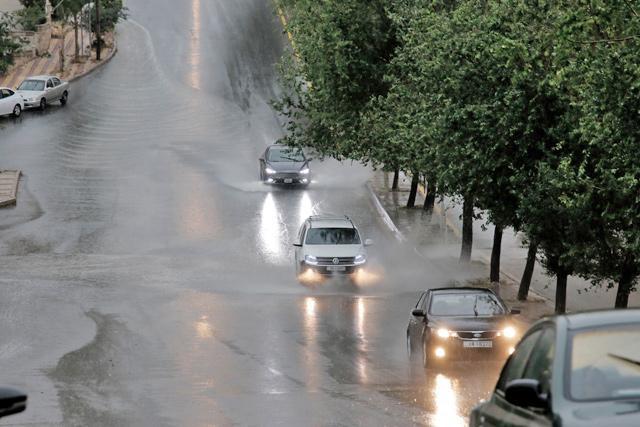You are here
When the road salt seeps, sometimes US manhole covers fly
By AP - Mar 25,2015 - Last updated at Mar 25,2015
WASHINGTON — Scientific literature traces manhole cover explosions back nearly a century, but a series of such incidents in the Midwest city of Indianapolis has authorities looking for a quick solution.
A combination of power system design, winter road salt, older electrical cable insulation and basic chemistry have triggered underground explosions in older downtowns, launching 160-kilogramme manhole covers high in the air. One Georgia Tech engineering professor calculated the explosions could have the force of three sticks of dynamite.
"These things have been known to be launched 10 stories; they have found a manhole cover on top of a building in a certain downtown city," said Daniel O'Neill, who advises several utilities on the problem. "They are dangerous things. There are hundreds of these things happening every year."
The nonprofit Electric Power Research Institute's lab in Lenox, Massachusetts, has spent the last 25 years setting off what officials there call "manhole events". It's not for fun. Engineers are trying to find a way to keep manhole covers from flying.
"We're disappointed to say we've not yet solved the problem," said Matt Olearczyk, manager of distribution research for EPRI. He said, his team will keep at the problem "or we're going to die trying to fix it".
The EPRI team has come up with partial solutions, such as latching manhole covers to the ground with a hook-and-piston system. When there's an explosion, those covers lift a few inches to let off some pressure, but not so much as to let in oxygen to stoke the explosion.
Experts do know how and why these explosions happen amid thousands of kilometres of tightly bundled electrical cables.
It starts with the way electrical power is distributed in older downtowns underground. Cables are linked so that if one fails, others take over, O'Neill said.
Cable insulation can fray or kink due to age, wear and tear, high power loads during the summer and corrosive road salt. That exposes wiring, which can spark and smolder. Especially when the insulation is older and consists of an oily paper, that releases gases, including hydrogen, methane, acetylene, carbon monoxide and ethylene, O'Neill and Olearczyk said.
Then, salty or dirty water gives the electricity a path to the ground and the spark to set off explosions, O'Neill said.
That's why O'Neill and Olearczyk say they see more blasts events during the winter and in more northerly cities. The salt is a key ingredient. Consolidated Edison once compared manhole explosions to the streets where road salt was used and found a good correlation, O'Neill said.
The expensive process of replacing the cables with plastic insulated modern cables works well, Olearczyk said.
Related Articles
AMMAN — Minister of Investment Khairy Amr on Monday acquainted Irish Ambassador to Jordan Vincent O'Neill with the competitive advantages of
AMMAN — Irish Ambassador in Amman Vincent O'Neill on Tuesday said that Jordan and Ireland enjoy “strong ties” in various fields, adding that
AMMAN — The Greater Amman Municipality (GAM) is checking up on the capital’s streets and manholes ahead of the wet season to prevent road fl












